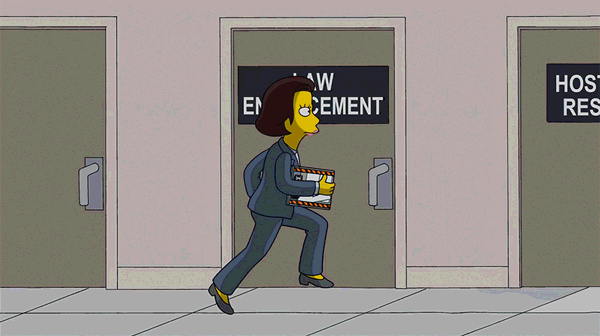Junk Explained: What You Need To Know About The ‘Dallas Buyers Club’/iiNet Piracy Ruling

If you’re a normal human who doesn’t peruse the finer details of copyright cases on your coffee break, you may have some questions about the kerfuffle that went on this week, involving iiNet in the Federal Court.
Why is everyone talking about that okay film you saw on a plane two years ago? How many of your friends are going to jail, and how soon, and for how long, and is it okay if you don’t visit them? Is George Brandis in cahoots with Matthew McConaughey now? If you throw your MacBook out of a moving train will the cops still find out you once kind of ironically, kind of seriously downloaded How To Lose A Guy In Ten Days?
As the dust settles on the initial furore, we took the liberty to weave through a few of the finer details.
–
What Happened In This Case?
This all kicked off in October last year when Dallas Buyers Club LLC, the company that holds the rights to the film of the same name, took to the Federal Court asking iiNet and a bunch of smaller internet service providers to hand over the personal details of all customers who shared their film via BitTorrent.
Well, asking might not be quite the right word.

This was something they’d done elsewhere. Months prior they sued more than 100 BitTorrent pirates in the US federal court, pressuring many into worthwhile settlement costs. And, with an estimated 55 percent of Australians between 18-24 regularly downloading pirated films, the rights holders had a pretty good reason to come down under.
FFS, it's called 'booty.' You're just embarrassing yourself now. Pffft, 'cash', *snort* pic.twitter.com/3OMUuL7HdI
— Stephen Stockwell (@stephenstockwel) April 8, 2015
But because throwing a bunch of your customers into court or bankruptcy isn’t exactly great for business, this was never going to happen without a fight from our ISPs.
iiNet quickly refused to hand over the names of those who had pirated the film, and labelled it “an important test case” for piracy in Australia. Though they outrightly oppose copyright infringement, they were worried that complying with the movie’s producers would give them undue power to bully their customers and “open the floodgates to further claims by other rights holders”, ultimately creating an untenable situation for everyone.
Now it’s happened.
On Tuesday this week, Federal Court judge Nye Perram ruled that the ISPs in question must hand over the names and home addresses of the 4,726 who allegedly shared the film. Though there a few hoops to jump through yet, it’s expected that the copyright owners will use this information to mail out letters threatening legal action to each account holder.
In the wait for this, thousands of Australians are now frantically scrolling through their downloads. Did your love for the lead singer from Thirty Seconds to Mars and a guy who likes to take his shirt off and act like a stoned Foghorn Leghorn just land you in some serious shit?
–
How Could This Ruling Affect You?
Obviously, if you don’t torrent films you have nothing to worry about (unless someone has been stealing your internet). But, for argument’s sake, let’s look at how things could pan out for everyone else.
First of all: check what internet service provider you use. If you’re with Telstra, Optus or TPG, you’re in the clear; the ruling only applies to those signed up to iiNet, Dodo, Internode, Amnet Broadband, Adam Internet and Wideband Networks.
Next up: did you share the film or just download it? The process of litigation is too arduous to go after everyone who simply downloaded the file, so the ruling actually only applies to those who seeded the film to others. It’s also worth noting that many torrenting programs do this automatically.
If neither of those things gave you sweet relief, congratulations. You’re probably getting a letter.

While it’s unclear exactly what this letter will be, it’s going to be a ways off “Go Directly To Jail. Do Not Pass Go.” When they were prosecuting alleged pirates in the US, the film owners sent out “speculative invoices” which pressured the defendant into paying out of court settlement costs between $3,500 and $14,000. It’s a pretty sneaky kind of intimidation tactic, but it’s also fairly indicative of the fact that the copyright owners don’t even want to go to court.
Turns out it’s super easy to prove that your internet account was responsible for sharing the file, but it’s basically impossible to prove that it was you who did it.
Thankfully, the Federal Court judge who issued the ruling on Tuesday added a stipulation that would virtually disallow this practice; any letter the rights holders want to send must be approved by him first. But, if that doesn’t make you feel completely secure, you should probably just fling a lawyer friend $20 to quickly tell you what to do.

–
What Does This Mean For The Industry?
This is widely being referred to as “a landmark case”, and there are a bunch of reasons why.
Firstly, as the CEO of the Communications Alliance points out, it is the first time an Australian judge has made specific moves to combat speculative invoicing. This sends a strong message about the practices of rights holders and also offers the Australian public a great opportunity to better learn their rights.
Also, it’s not a great look for iiNet. This smaller ISP has developed a stellar reputation for itself as the champion of the people. From 2008-2012, they stood up to the Australian Federation Against Copyright Theft in the High Court, claiming they had no obligation to track or control their customers’ web activity. The case set a crucial binding precedent that stated ISPs didn’t have to answer to copyright holders, and it also ignited some pretty purposeful marketing campaigns.
Of course, they did put up a good fight trying to get their customers the best legal treatment possible, but now it looks to be fizzling out. There are technically 25 more days in which iiNet can launch an appeal against Tuesday’s ruling, but with their CEO David Buckingham telling Fairfax he was pleased with the result, it looks like everyone’s now on their own.
Most importantly, this has big implications for the movie industry as a whole. With ISPs handing over private information, it will be much easier for film studios to prosecute pirates directly. Michael Wickstrom, Vice President of Royalties and Music Administration at Voltage Pictures (the parent company of Dallas Buyers Club), stated his position to the listeners of Hack on Wednesday, claiming there was no other way to move the industry forward.
“Know that when you’re uploading and downloading illegally, you are hurting that film,” he said. “Downloading is incredibly easy these days but it’s still wrong. We are losing millions of dollars a day if we do nothing.”
“We’re the first filmmaker to say enough is enough. If we don’t change the business model we will fail and everyone here will lose their job.”
Remarkably, those words will most likely ring true with pirates and industry types alike. The business model should absolutely change. But angry letters and court costs sound much tougher than making sure your film doesn’t premiere in Australia more than three full months after the US or chucking it up on affordable, convenient sites like Netflix.

–
Meg Watson is Junkee’s staff writer and weekend editor.
